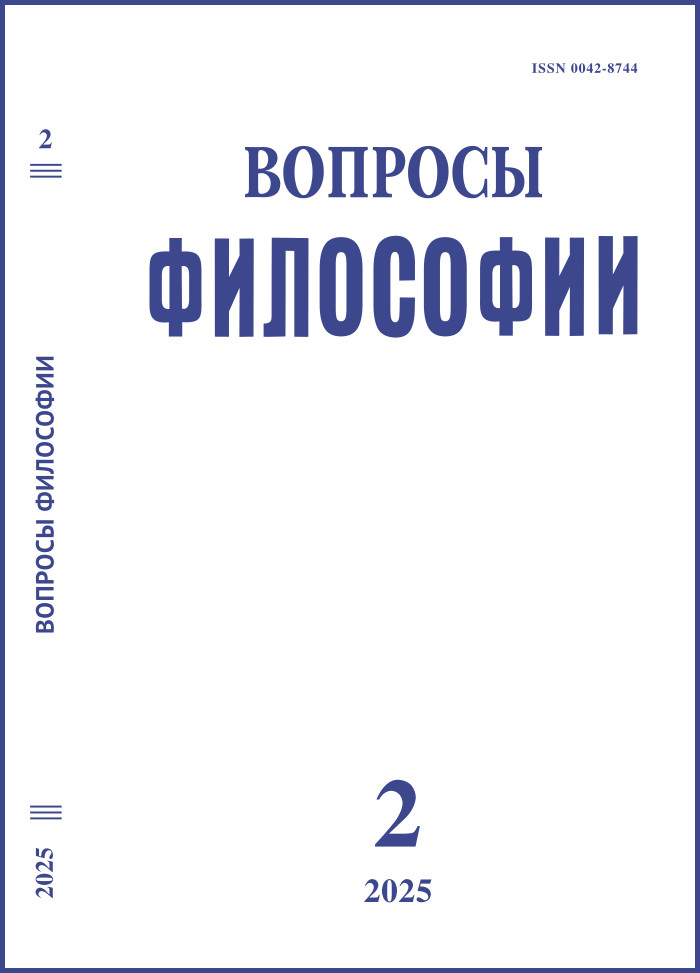The Concept of “A Priori Synthetic Judgments” in the Philosophy of Mathematics of Kant and Poincaré. “A Priori Synthetic Judgments” in Kant’s Interpretation of Mathematical Knowledge
DOI:
https://doi.org/10.21146/0042-8744-2025-2-105-115Keywords:
philosophy of mathematics, I. Kant, a priori synthetic judgments, A. PoincaréAbstract
The article analyzes the concept of a priori synthetic judgment in the concept of mathematical knowledge of I. Kant, examines the prehistory of this concept in pre-critical Kantian philosophy, examines the connection of Kant’s ideas about mathematics with his contemporary concepts of mathematical knowledge (Wolf, Lambert), the gradual divergence of Kant from Leibniz-Wolfian philosophical tradition. The foundations and characteristic features of Kant’s doctrine of a priori synthetic judgments are reconstructed for subsequent comparison of this doctrine with the concept of a priori synthetic judgment in the philosophy of science of Henri Poincaré. Particular attention is paid to Kant’s expressions “pure contemplation” and “construction of concepts”, which characterize the specifics of mathematical knowledge in Kant. Kant finds the basis of a priori synthesis in the faculty of imagination, and the basis of synthetic unity necessary for the construction of synthetic judgments in the unity of apperception. During the critical period, a priori synthesis for Kant is not only the basis of mathematical knowledge, but also the knowledge of objects. In Kant, it is pure intuition that makes mathematical knowledge possible, expressing itself in a priori synthetic judgments.

